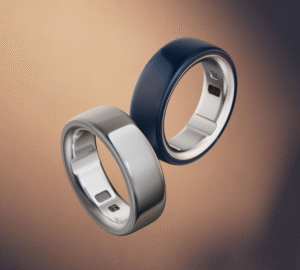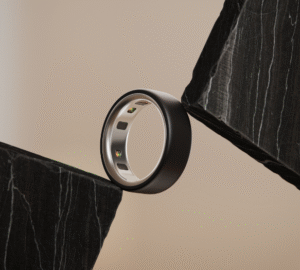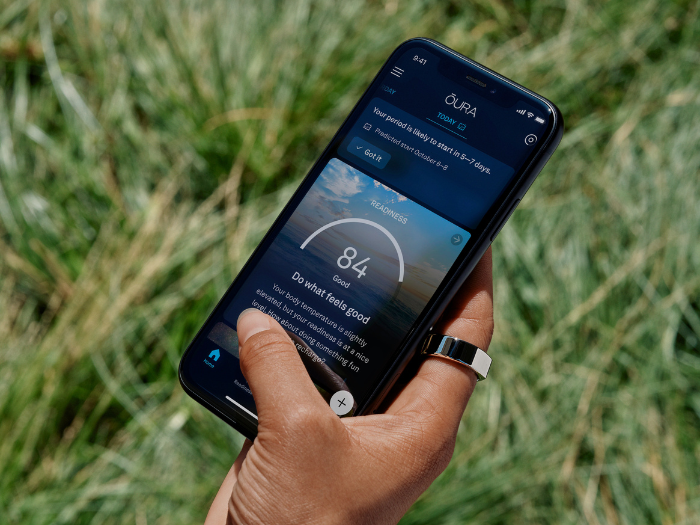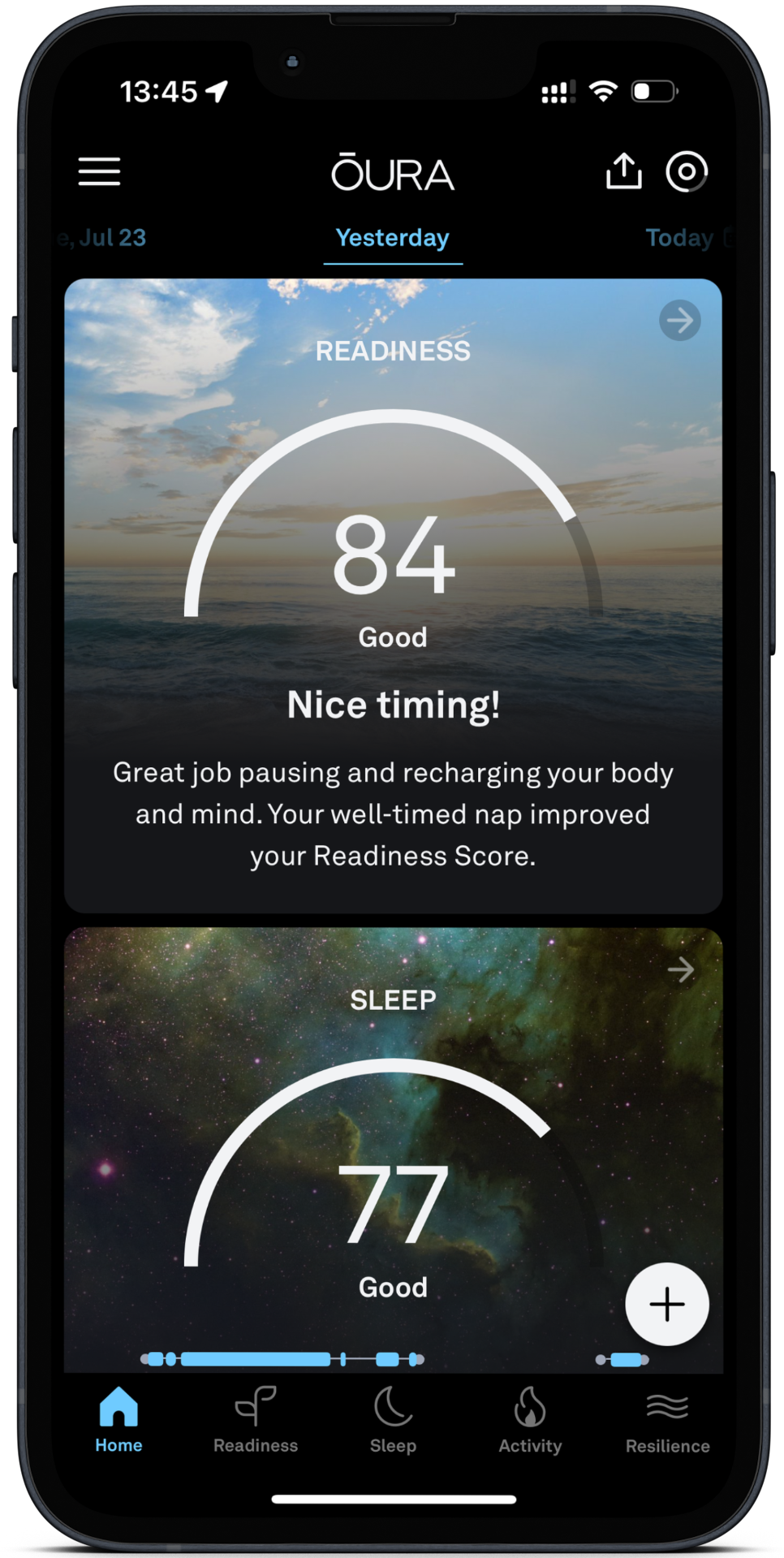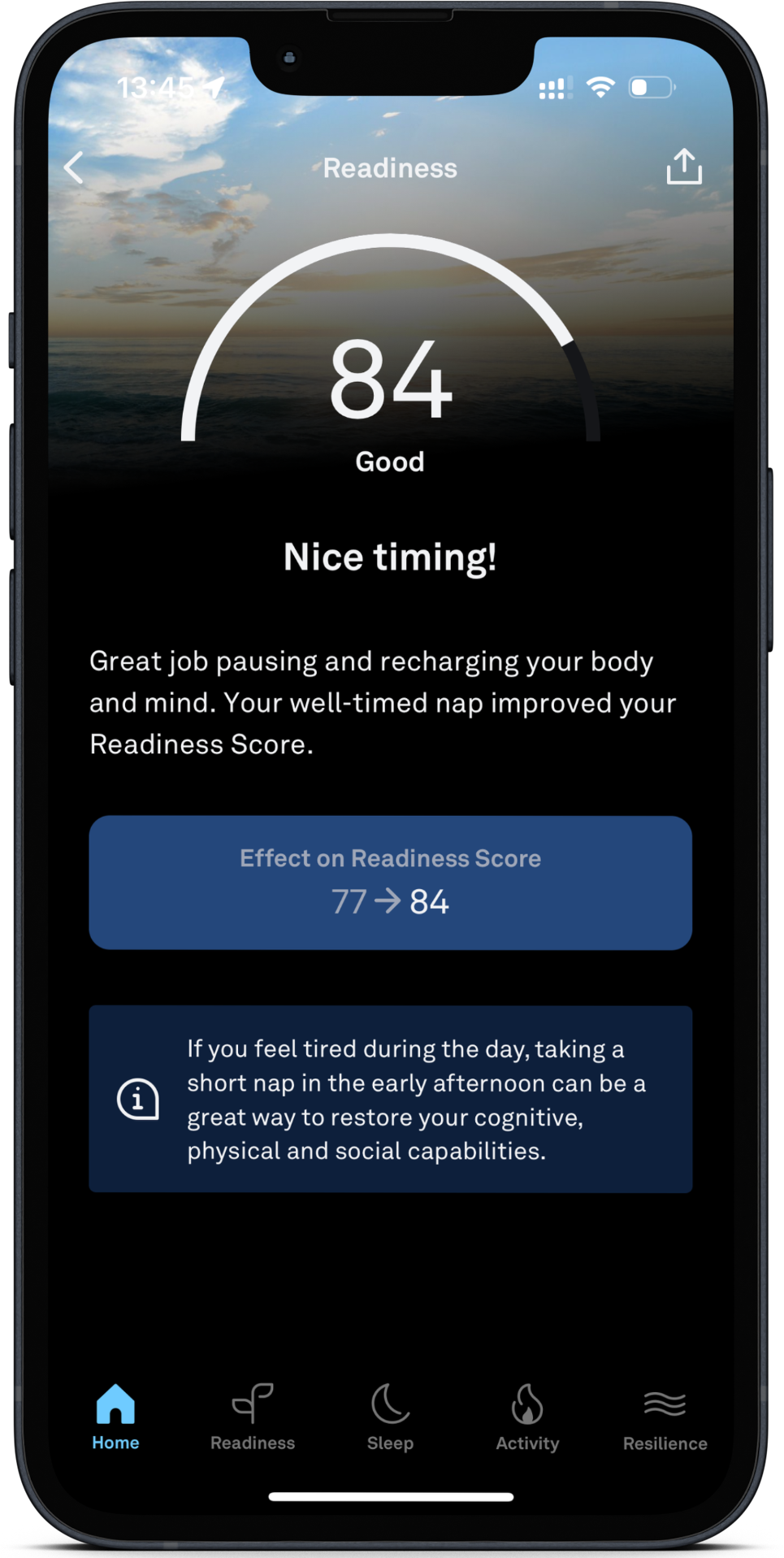Whether it’s to “concentrate on recovery” or “make a move,” Oura’s daily insight messages translate your data and trends into simple, actionable guidance.
The goal of insight messages is to make the data more accessible, actionable, and understandable. They interpret the science of Oura—the algorithms and scores—and provide the highlights in human language.
If you’re an Oura member, you might have wondered: What goes into my daily insight messages on Oura? Who creates them? And maybe: How do they know I ate a late-night meal last night?!
To learn more about the science and the story behind insight messages, we spoke with the Insights team, who creates these daily interpretations of your data.
What Are Insight Messages?
An insight message is a short, digestible summary of a member’s data that provides context, a bit of light guidance, and motivation where appropriate.
From heart rate variability to steps walked, from sleep stages to stress levels, Oura provides a lot of data. As a member, you get a ton of science-heavy scores and readings from your ring every day. Insight messages translate your key findings into an easy-to-read snapshot.
Insight messages often highlight an important, interesting, or insightful trend or finding in your data. For instance, you may receive a notification that your sleeping heart rate was higher than usual during the night. Or perhaps we celebrate the fact that your inactivity time is lower than usual. Oura notices!
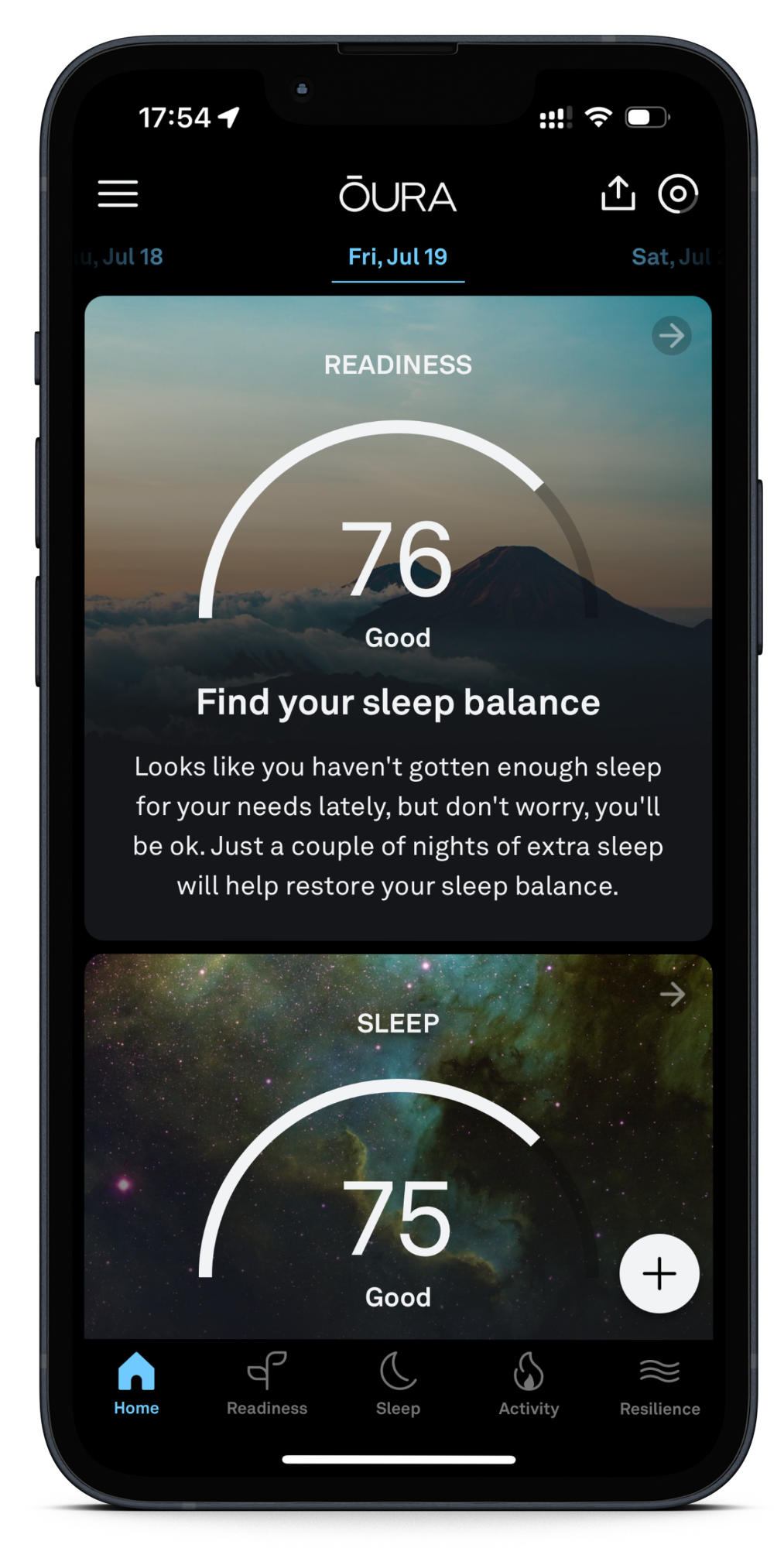 Where to Find Insight Messages
Where to Find Insight Messages
Currently, you’ll receive daily insight messages relating to your Readiness Score, Sleep Score, and daytime stress levels, which are found on the Home tab of the Oura App.
Depending on what features you’ve opted in to, you might see insight messages in the Cycle Insights feature, as well as weekly, monthly, or anniversary reports.
Additionally, the Resilience tab hosts Resilience insights, as well as guidance and tips that suggest small, manageable actions that can improve your Resilience level.
READ MORE: What Makes the Oura Ring Different?
The Science Behind Insight Messages
It Takes a (Scientific) Village
The Insights team consistently consults our internal Science team as well as experts in sleep science, medicine, women’s health, and stress research. They also work closely with biomedical engineers and research scientists who specialize in health data.
Oura insights are carefully crafted using input from a broad range of scientists, as well as a thorough review of both peer-reviewed research studies and regulated guidance from organizations such as the World Health Organization and other government organizations.
The Insights team emphasizes research for two reasons: First, our goal is to ensure every insight is scientifically sound. Second, we aim to provide advice that is carefully tailored to the physiological needs behind each of our features, so you possess the best possible information for your own decision-making.
The Data Behind the Insights
Oura’s insight messages are based on all of your health data in the Oura App, plus contextual in-app guidance, such as the use of tags.
This includes metrics such as your resting heart rate, temperature trends, daily movement, and sleep quality, as well as feature-specific assessments like daytime stress zones.
On any given day, there are thousands of different insight messages you may see, depending on your individual data points. What determines which message you receive depends on the algorithm, which prioritizes data points differently — for instance, an elevated body temperature or elevated resting heart rate are weighted more heavily than other metrics.
The Challenges of Generalization
Human beings are very complex, and it’s hard to make generalizations. Despite the granularity of detail that Oura provides, your Oura data provides only a small slice of your current health status.
In other words, Oura is not able to understand the context behind your health data, such as your mental health, situational changes, or overall lifestyle. That’s why we make educated hypotheses, based on the data we do have access to.
Note that Oura is not a medical device, and the messages aren’t supposed to be used as health advice. Insight messages will encourage you to reflect on your own data, and make decisions based on your own unique context. After all, you know yourself best, and you’re the expert in your own life.
| Member Tip: Tap on an insight card to access more detailed information, often accompanied by a visualization of the data. This helps you better understand your daily insights. Additionally, there may be more information about the specific metric. |
Insight Messages: The “Voice of Oura”
Insight messages are the voice of Oura. They’re thoughtfully designed to convey honesty and empathy to our members, and more importantly, they promote a strategy that we hope our members will follow to achieve optimal well-being.
A Compassionate Approach
The goal of helping members feel understood comes across in the empathetic tone of voice of Oura’s insight messages. When writing insight messages, the writers behind the messages try to be brief and direct, but they also try to infuse our insights with warmth, empathy, and encouragement, so that the experience of monitoring and reflecting on your health data can be a pleasant one.
Insight messages also often focus on rest, rather than overexertion. That’s why insight messages often remind you to slow down or take a break.
However, it doesn’t mean that insights will gloss over the not-so-great data—they won’t hide a bad night’s sleep or poor recovery. But they will encourage you to be kind to yourself along the process of improvement.
Overall, striking the right balance between informative and compassionate can be challenging, but this goal echoes Oura’s greater mission to make health a daily practice. On a health journey, all of us have great days and bad days and everything in between, and it’s key to maintain patience and balance over the long haul.
READ MORE: Learn About Oura’s Compassionate Approach to Sleep
How to Use Insights to Spark Behavior Change
The vast amount of data measured by Oura can be overwhelming for members just starting their wellness journey. From a behavioral science perspective, that’s why insight messages are so important—they simplify and humanize the data into an actionable takeaway.
Noting the daily feedback—and acting on it accordingly—forms a path of stepping stones. One at a time, these new habits add up to bigger changes and long-term benefits.
For instance, perhaps you receive an Oura insight message noting your sleeping heart rate lowered later in the night. It also prompts you to reflect on whether you may have eaten a late-night meal. Turns out, you did—so you make sure to eat dinner an hour earlier the next night, resulting in an improved heart rate contributor score.
Another example: you may receive a Readiness insight message that highlights your low inactive time. This is important because avoiding long periods of being sedentary is helpful for your well-being, mood, and joint health. It sounds simple, but these small nudges can lead to long-term positive behavior change.
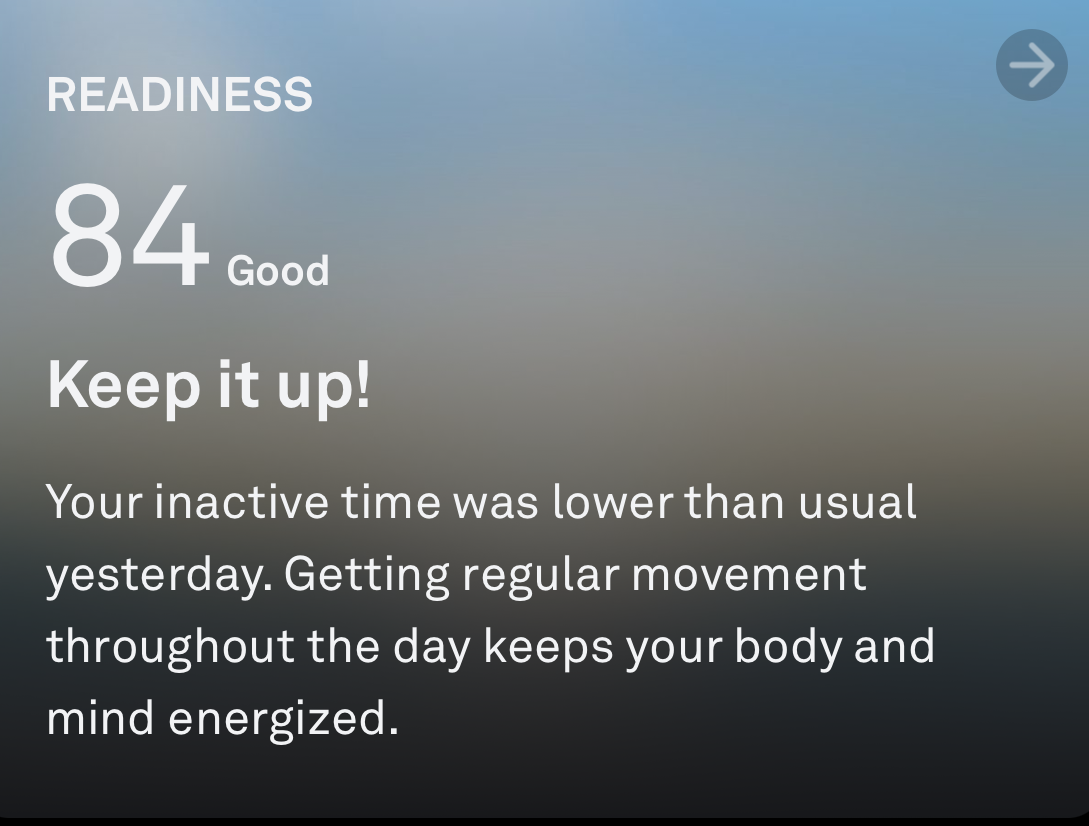
Additionally, with the goal of helping members see the bigger picture of their holistic health, we’ve updated the Trends you’ll see in the Home tab. Based on the health focus areas in your profile, we’ve determined which specific metrics should be of greater focus, and if there’s an interesting change with one of those, Oura will highlight that change as a Trend. For example, you may see positive or negative trends in your total sleep, inactive time, walking equivalency, or heart rate variability.
These insights are meant to emphasize the fact that it’s common to experience a downward trend occasionally, and that positive change is possible with small, achievable steps.
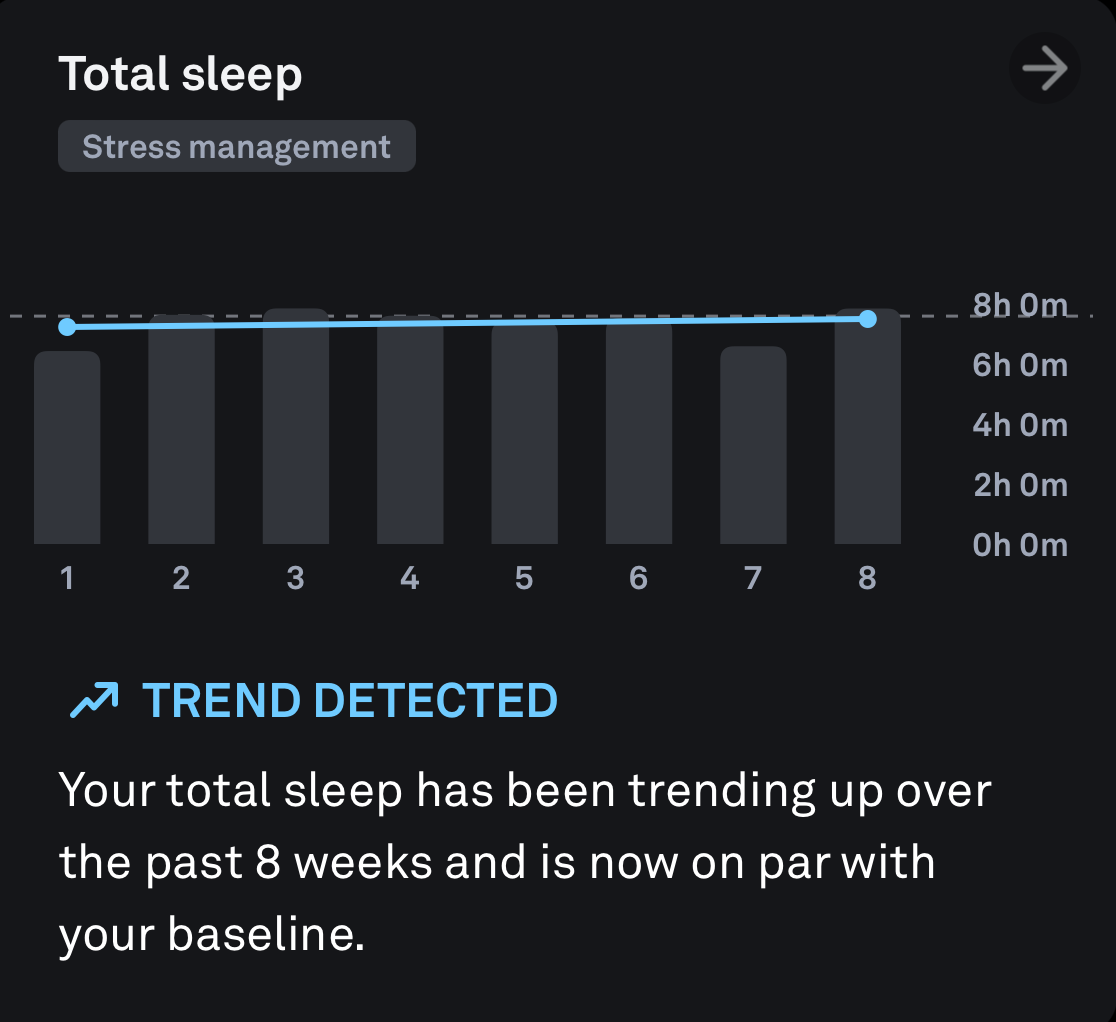
READ MORE: Defining Low, Medium, and High-Intensity Movement & Using Oura to Track It








